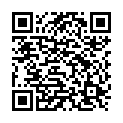|
|
|
| Module code: MST.FWF |
|
|
4V+3P (7 hours per week, accumulated) |
|
6 |
| Semester: 2 |
| Duration: 2 semester |
| Mandatory course: yes |
Language of instruction:
German |
Assessment:
Written exam
[updated 10.05.2021]
|
MST.FWF (P231-0043, P231-0044, P231-0045) Mechatronics and Sensor Technology, Bachelor, ASPO 01.10.2012
, semester 2, mandatory course
MST.FWF (P231-0043, P231-0044, P231-0045) Mechatronics and Sensor Technology, Bachelor, ASPO 01.10.2011
, semester 2, mandatory course
|
105 class hours (= 78.75 clock hours) over a 15-week period.
The total student study time is 180 hours (equivalent to 6 ECTS credits).
There are therefore 101.25 hours available for class preparation and follow-up work and exam preparation.
|
Recommended prerequisites (modules):
MST.DAS
MST.WEW Materials Science
[updated 09.10.2017]
|
Recommended as prerequisite for:
MST.RAY Introduction to the Ray Tracing Simulation Technique
[updated 01.10.2012]
|
Module coordinator:
Prof. Dr. Günter Schultes |
Lecturer:
Prof. Dr. Günter Schultes
Dipl.-Ing. Bernd Gaspard
[updated 27.03.2017]
|
Learning outcomes:
After successfully completing this course, students will be familiar with the most important manufacturing processes of DIN 8580 with special reference to precision engineering. They will also be familiar with technological features such as operating principles and process parameters. Students will be able to assess the application areas of the processes and materials. They will have extended their knowledge about technical mechanics. And thus, link that knowledge with the content discussed in the course.
Students will be familiar with the most important manufacturing processes in microtechnology, their fields of application and MEMS design examples. They will understand precision and microtechnical products and their manufacturing processes.
They will refresh and develop their basic CAD and FEM knowledge required for technical drawings and component calculations. Students will be able to create technical drawings in 2D and 3D and will be able to solve simple strength of materials problems using software tools for calculation. They will be able to integrate standard parts libraries and work with fasteners such as screws, nuts, etc. Students will also be familiar with mechanical sensors.
[updated 10.05.2021]
|
Module content:
Part I:
Precision engineering
1. Overview and classification
2. Primary forming processes, casting: Processes, materials and design rules, sintering
3. Forming manufacturing processes
4. Separating processes:
Machining with geometrically determined cutting edge (turning, milling, drilling)
Machining with geometrically indeterminate cutting edge (grinding)
5. Joining
Hard and soft soldering
Press and fusion welding processes, for example, laser beam welding, resistance welding,
Microtechnology
1. Introduction: What makes “micro” different?
2. Micromechanical silicon pressure sensors
- Operating principle and designs
3. Microsystems: Acceleration and rotation rate sensors
Physical operating principles, designs and measurement technology
4. Necessary technologies for the production of microstructures
Silicon wafer, thermal oxidation
Coating technologies, PVD and CVD
Structuring and etching processes
Vacuum technology
5. Nanotechnology
Nanoscale metal matrix layers (granular metals) in sensor technology, examples from our own research
Laser micromachining with ultra-short laser pulses
The course will be supplemented by special teaching segments such as: factory tours, the manufacture of sensors for pressure and force measurement technology, demonstration of CNC processing machines.
Part II:
1. Basic settings in AutoCAD, drafting
2. Drafting precisely and editing commands for 2-D drawings
3. Polylines and flat elements
4. Layer technique
5. Dimensioning and texts
6. Prototype drawings, blocks, external references
7. Models and paper, plotting
8. Standard parts library, working with standardized screws, nuts, pins, etc.
9. Description and presentation of the 3D functionality
10. Calculating deflection curves and moment lines
11. 2-D finite element calculations (FEM)
[updated 10.05.2021]
|
Teaching methods/Media:
Lecture, special teaching units with practical demonstrations, creation of a paper and a poster on a special topic.
[updated 10.05.2021]
|
Recommended or required reading:
Precision Engineering:
- A. H. Fritz , G. Schulze, Fertigungstechnik, Springer Lehrbuch, also available as an e-book
- A. Risse, Fertigungsverfahren der Mechatronik, Feinwerk- und Präzisionsgerätetechnik, Springer Lehrbuch, also available as an e-book
- W. Krause, Fertigung in der Feinwerk- und Mikrotechnik, Hanser Verlag
- W. Krause, Grundlagen der Konstruktion, Hanser Verlag
- Tabellenbuch Metall und Werkstofftechnik für Metallberufe, Verlag Europa Lehrmittel
Microtechnology:
- F. Völklein, T. Zetterer, Praxiswissen Mikrosystemtechnik, Vieweg Verlag
- T.M. Adams, R.A. Layton, Introductory MEMS, Springer Verlag
- Bosch, Sensoren im Kraftfahrzeug, Springer Verlag
- M. Glück, MEMS in der Mikrosystemtechnik, Teubner Verlag
Technical drafting and CAD:
- Hoischen: Technisches Zeichnen, Cornelsen Verlag
- Troff: AutoCAD 2002 für Windows / Grundlagen / 2D / 3D, Herdt Verlag
- Ridder: AutoCAD 2002 im Maschinenbau, mitp Verlag
[updated 10.05.2021]
|


